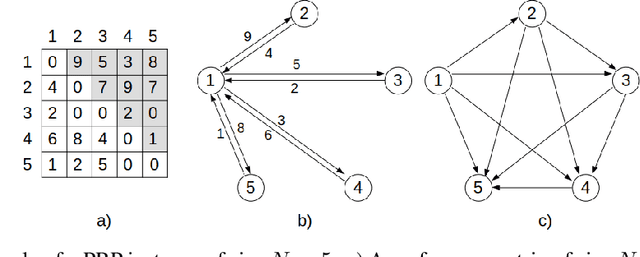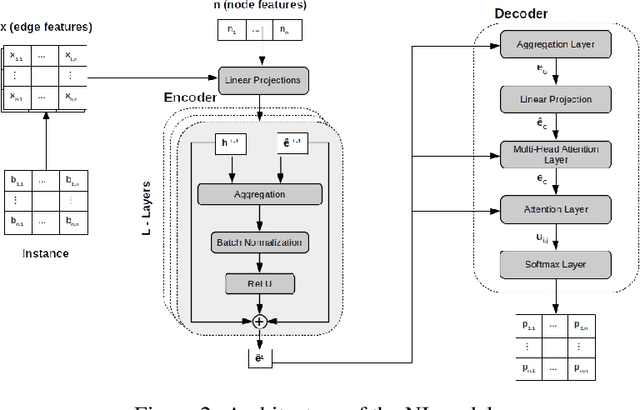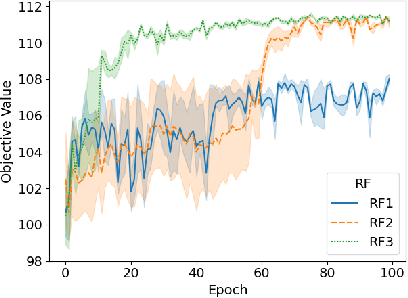Neural Improvement Heuristics for Preference Ranking
Paper and Code
Jun 01, 2022



In recent years, Deep Learning based methods have been a revolution in the field of combinatorial optimization. They learn to approximate solutions and constitute an interesting choice when dealing with repetitive problems drawn from similar distributions. Most effort has been devoted to investigating neural constructive methods, while the works that propose neural models to iteratively improve a candidate solution are less frequent. In this paper, we present a Neural Improvement (NI) model for graph-based combinatorial problems that, given an instance and a candidate solution, encodes the problem information by means of edge features. Our model proposes a modification on the pairwise precedence of items to increase the quality of the solution. We demonstrate the practicality of the model by applying it as the building block of a Neural Hill Climber and other trajectory-based methods. The algorithms are used to solve the Preference Ranking Problem and results show that they outperform conventional alternatives in simulated and real-world data. Conducted experiments also reveal that the proposed model can be a milestone in the development of efficiently guided trajectory-based optimization algorithms.
 Add to Chrome
Add to Chrome Add to Firefox
Add to Firefox Add to Edge
Add to Edge